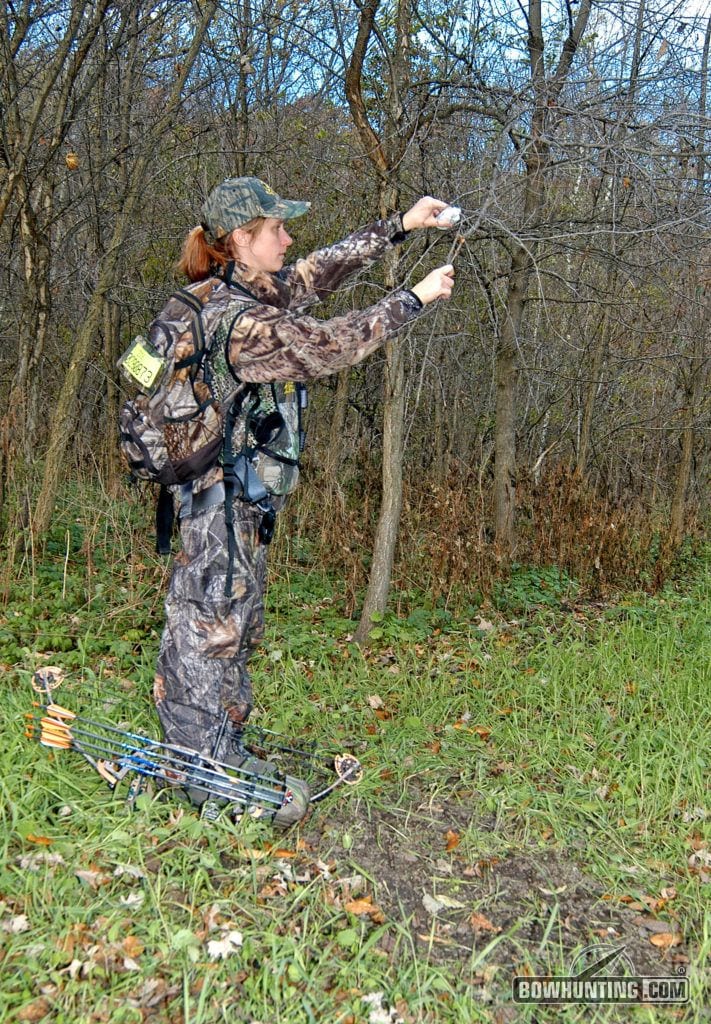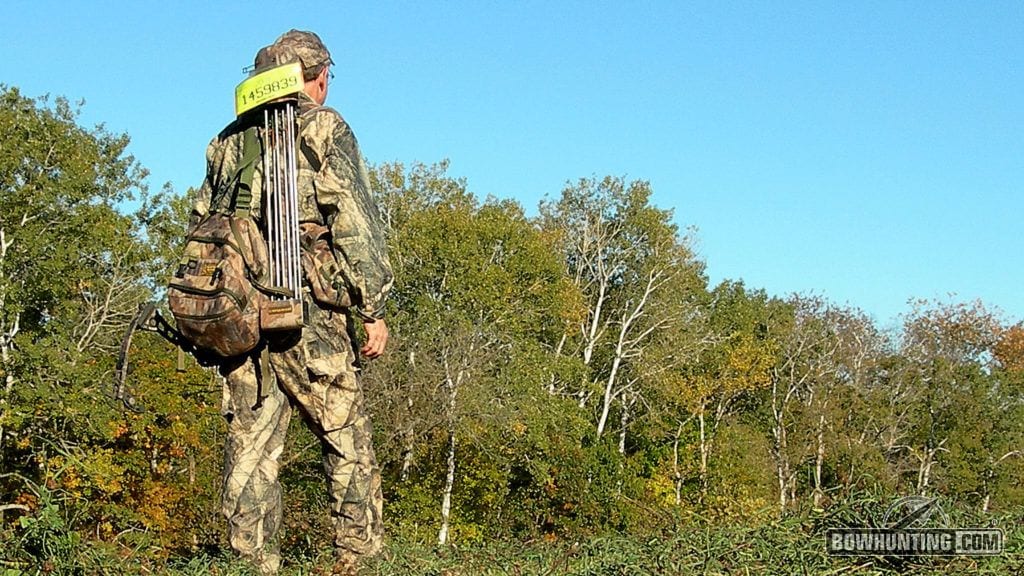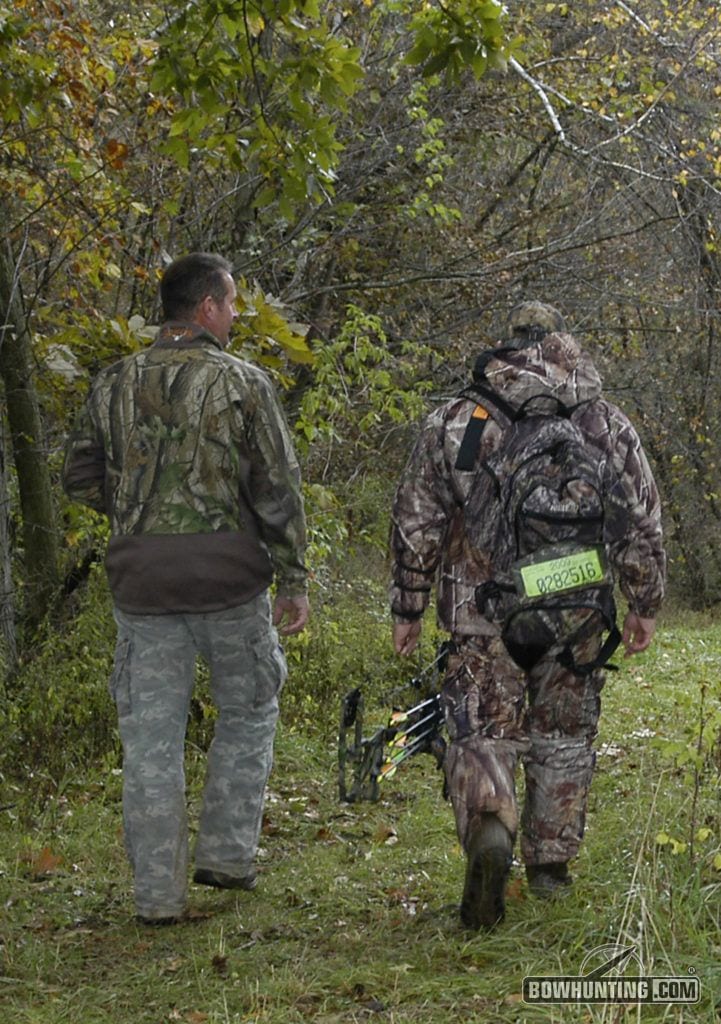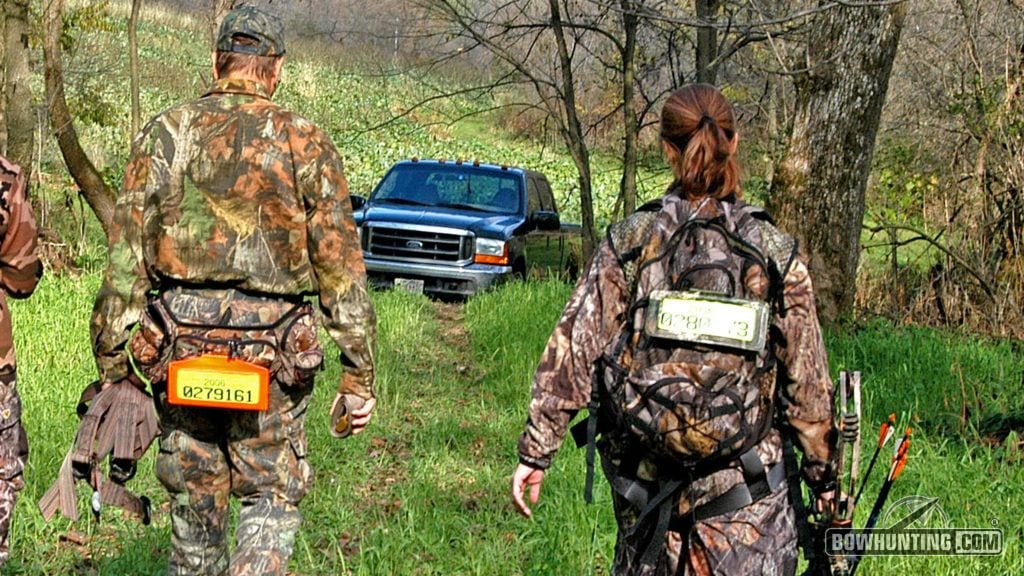When Wisconsin’s bear and deer seasons open this fall, bowhunters and gun-hunters will head to the woods without pinning a state-issued identification tag between their shoulders for the first time since 1941.

Wisconsin’s deer and bear hunters will no longer be forced to wear identification backtags, a requirement that began in 1942.
Yes, the backtag is dead. Good riddance. Those silly, indestructible 3.5-by-9-inch irritations have been a prominent but oddly popular part of Wisconsin’s deer hunting heritage since the Legislature mandated their use in the 1942 season.
Sheesh. Talk about odd priorities. You’d assume Wisconsin lawmakers had more pressing issues to address in the aftermath of Japan’s attack on Pearl Harbor. But no, somehow they found time to mandate deer hunters display these scarlet letters with six- or 7-digit ID numbers “where they can be clearly seen in the center of the back on the outermost garment.”
And just so we’re clear, the regulations stated, “The backtag number must not be hidden by a coat hood or pack, displayed upside down or be marked up in any manner.”
Why did Wisconsin single out deer hunters and bear hunters for such public branding? The excuses for backtags usually cited two factors and one assumption:
– They help landowners identify trespassers.
— They help conservation wardens verify from a distance that deer or bear hunters bought the current license.
— Potential violators think twice about turning impure impulses into deeds when they know witnesses – visible or lurking unseen – can identify them by their backtag number.
In other words, deer hunters and bear hunters are notorious scofflaws and intruders compared to hikers, bicyclists, campers, canoeists, kayakers, backpackers, bird hunters, waterfowlers, birdwatchers, trout anglers, mushroom hunters, ginseng collectors, small-game hunters, rambunctious Scouts and anyone else veering off rural Wisconsin’s beaten paths.
Perhaps more incredible than the law’s origins was its nearly 75-year run before Wisconsin’s current Capitol-dwellers ended the nonsense. In fact, few questioned the backtag’s value until someone noticed that Michigan dumped its miniature backtags after the 1994 deer season.

Wisconsin’s bowhunters also had to wear backtags the past 74 years when hunting deer or bears.
That made Wisconsin one of only 10 states requiring backtags. Soon after, Ohio, Illinois, Maryland, Connecticut and Massachusetts came to their senses. And then Wisconsin’s bowhunters and gun-hunters awoke one day in 2006 to realize theirs was the only state besides Delaware, New York, New Jersey and Pennsylvania still requiring them.
And when folks called the roll again in 2013, Wisconsin stood alone with New York as the nation’s last backtag backers. Sort of. To its embarrassment, New York still requires backtags when deer hunting its farm country, but not when hunting its Northern forest zone and Catskills Park.
Head shake. Given the backtag’s history, we don’t assume any logic in that exception.
Then again, it’s hard to fault Wisconsin lawmakers for hesitating to change. In April 2012, the Wisconsin Conservation Congress – 360

The only state still requiring backtags for deer hunting is New York, which requires them in much of its southern regions.
publicly elected delegates who advise the Department of Natural Resources’ policy-setting board – asked voters attending statewide hearings whether we should abolish backtags. Of the 5,062 who voted, 56 percent (2,813) said no, keep them; and 44 percent said yes, dump them (2,249). And in the county-wide vote, it was nearly identical: 41 no, 57 percent; 28 yes, 39 percent; and 3 tied, 4 percent.
Yes, even hunters don’t trust each other. Apparently Wisconsin hunters endorse that old conservation warden’s saying: “A sportsman is a violator lacking opportunity.”
Backtag proponents, of course, often cite the November 2004 tragedy in which Chai Soua Vang’s back-tag number led to his speedy arrest in Sawyer County for murdering six other deer hunters and seriously wounding two more. But how many other times has a backtag helped send a murderer to jail? Let’s not use one freak tragedy to justify a law passed 62 years before the crime occurred.
Besides, James Nichols didn’t escape justice after he shot and stabbed Cha Vang to death in January 2005 while squirrel hunting in the Peshtigo Wildlife Area of northeastern Wisconsin. Neither man was wearing a backtag that day because they aren’t required for small-game hunting. And yet investigators tracked down Nichols, and a jury convicted him of second-degree intentional homicide.
Even so, skeptics predict rampant lawlessness without backtags to keep hunters honest. Really? How do states with more deer hunters than Wisconsin – Michigan, Texas and Pennsylvania, for example – control their marauding hordes?
Maybe a former Michigan warden got it right: “Violators avoided wearing or displaying their backtags anyway.” In fact, wardens elsewhere verified that enforcement didn’t suffer when their states discontinued backtags. An Illinois officer, for example, said it helped because there are more interactions from face-to-face license checks, rather than long-range checks with binoculars or spotting scopes.
And, just so you know, Wisconsin lawmakers did their due diligence by conducting a fiscal estimate of the law’s impact on revenues. Full disclosure: a net loss of $2,000 to the DNR.
According to the Department of Administration, the DNR will save about $54,000 annually in printing and materials costs by not issuing backtags, and $1,400 for not administering its backtag reservation system. Yes, some hunters paid $4.50 annually to receive the same number every year, so the DNR will sacrifice about $8,400 in backtag reservation fees and $49,000 for replacing lost backtags.
Bold prediction: Somehow, Wisconsin will survive the $2,000 hit.

 By
By 




